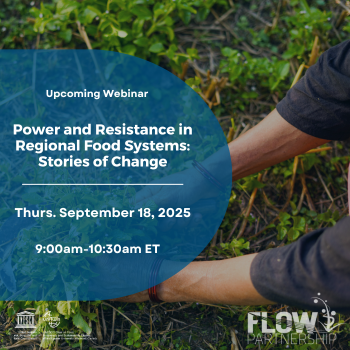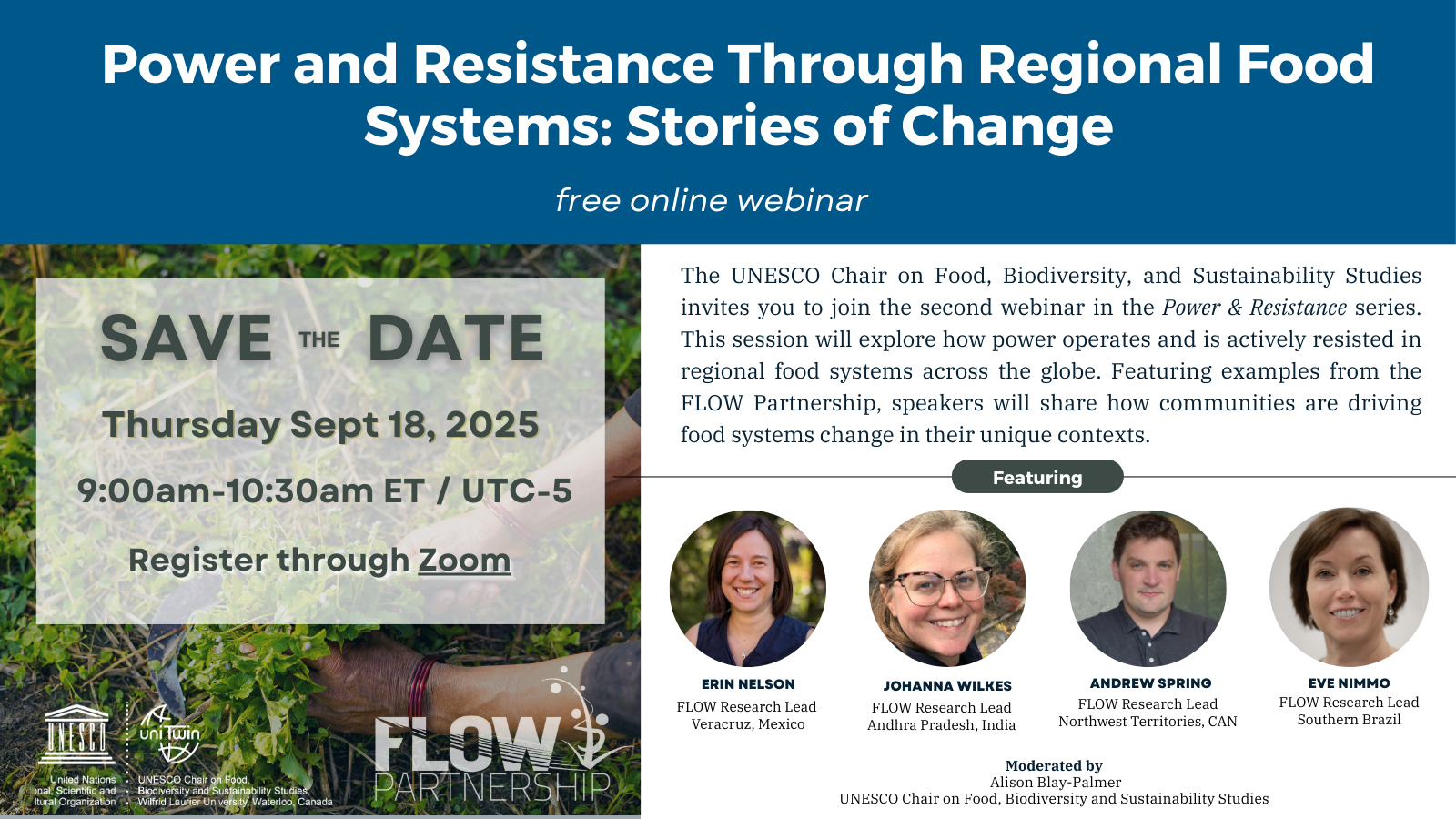We use cookies on this site to enhance your experience.
By selecting “Accept” and continuing to use this website, you consent to the use of cookies.

Building on the themes from the first session in our Power & Resistance series, this webinar delves into how power operates and is resisted within regional food systems.
Featuring examples from the FLOW Partnership, speakers will share how communities are driving food systems change in their unique contexts:
Veracruz, Mexico – Collective action leading to a ban on state-sponsored pesticide and resistance to glyphosate.
Northwest Territories, Canada – Climate change adaptation rooted in Indigenous knowledge, paving the way for supportive policies.
Andhra Pradesh, India – A statewide shift toward Natural Farming and building agroecological knowledge through farmer training programs.
Southern Brazil – The designation of shade-grown Erva Mate as a Globally Important Agricultural Heritage System.
These stories reveal how community-led action, traditional knowledge, and agroecology can shape policies and catalyze food system transformation.
Join us online, Thursday September 18, 2025 at 9:00am - 10:30am ET (UTC-5).
Register through Zoom
The event will be recorded and made available to registered attendees. If you have any questions, please contact emiltenburg@wlu.ca
Erin Nelson Is an Associate Professor at the University of Guelph in the Department of Sociology & Anthropology. With a background in International Development and Rural Studies, her research explores the development of more sustainable food systems with a particular focus on agroecology initiatives in both Canada and Latin America. In particular, she is interested in how knowledge-exchange can build capacity for agroecological production, and how agroecology can contribute to ecological resilience and community wellbeing. In Veracruz, Mexico, she collaborates with farmer networks, researchers and civil society organizations to scale up agroecological production of small-scale citrus farmers in ways the are healthy for their land and communities.
Andrew Spring is an Assistant Professor of the Department of Geography and Environmental Studies at Wilfrid Laurier University. Canada Research Chair in Northern Sustainable Food Systems and Director of the Laurier Centre for Sustainable Food Systems. His research is driven by community priorities in the Northwest Territories to advance sustainable food systems and build capacity around climate change adaptation. For over 10 years Andrew has supported participatory action research projects in collaboration with First Nations communities in the NWT. He is the Principal Investigator on The Future Harvest Partnership which engages with food producers and local communities of the Northwest Territories to co-create research and generate insights for innovation and policy that can inform the development of a climate-resilient local food system.
Johanna Wilkes is a Post-Doctoral Fellow in the Department of Geography and Environmental Studies at Wilfrid Laurier University. Johanna’s research examines how international institutions address climate-resilient farming and sustainable food futures, with a particular focus on agroecological transitions. Working with partners in Andhra Pradesh, India, Johanna has explored how Zero Budget Natural Farming (ZBNF) reduces farmer debt, builds on traditional knowledge, and fosters farmer-to-farmer learning. Her work highlights how enabling policy frameworks, influential advocates, community-led partnerships, and farmer-to-farmer learning networks have converged to make ZBNF one of the largest agroecological transitions in the world.
Eve Nimmo is a historical archaeologist whose career spans Brazil, Ecuador, Canada, and the UK, working across museums, NGOs, and universities. She is the Curator of the Bryan/Gruhn Archaeology and Ethnographic Collections at the University of Alberta. Her research brings together public history, community-based research, oral histories, and material culture to explore cultural heritage in its many forms. In Southern Brazil, Eve works with local communities to value and protect the agroecological and agroforestry systems to produce shade-grown erva-mate in the Araucaria Forest of Paraná. By building networks grounded in traditional knowledge and practice, she supports the development of cultural and environmental heritage conservation programs, policies, and strategies that sustain both livelihoods and landscapes.
